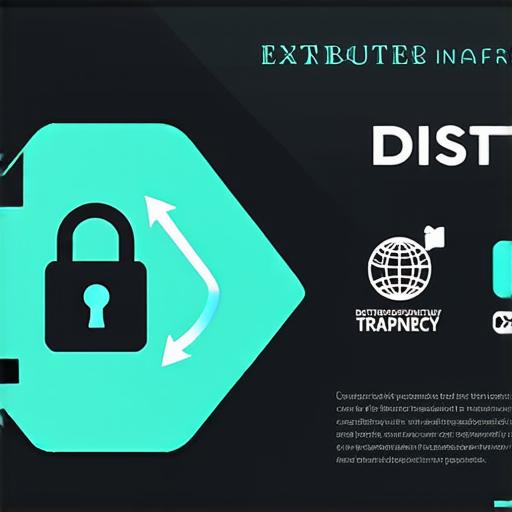Blockchain technology has the potential to change the way we store and transfer data online. With its decentralized, secure, and transparent properties, it’s no surprise that industries ranging from finance to healthcare are turning to blockchain to improve efficiency, reduce costs, and increase security.
What is Blockchain?
Blockchain technology is essentially a digital ledger that records transactions in a way that makes them secure and transparent. It’s decentralized, meaning there’s no central authority controlling the network. Instead, each participant in the network has a copy of the ledger, which means there’s no single point of failure.

One of the key properties of blockchain is its immutability. Once data is recorded on the ledger, it can’t be changed or deleted. This makes the system resistant to fraud and hacking, as well as providing a tamper-proof record of transactions. Another important property of blockchain is its transparency. Every participant in the network has access to the same information, which means that there’s no need for intermediaries or middlemen.
This makes it faster, cheaper, and more efficient than traditional systems.
How Blockchain Works
Blockchain works through a process called mining. Miners use powerful computers to solve complex mathematical problems, which validate transactions on the network. Once a transaction is validated, it’s added to the ledger in the form of a block. Each block contains a unique code that links it to the previous block, creating a chain of blocks or “blockchain.” The mining process also involves a consensus mechanism, which ensures that all participants in the network agree on the state of the ledger.
One common consensus mechanism is proof of work (PoW), where miners compete to solve the mathematical problems and validate transactions. Once a miner successfully validates a transaction, they are rewarded with cryptocurrency.
Use Cases for Blockchain
Blockchain technology has numerous use cases across various industries. One of the most well-known is Bitcoin, which uses blockchain technology to enable secure, decentralized transactions in the form of cryptocurrency.
Other popular use cases include:
- Supply chain management: Blockchain can provide a transparent and tamper-proof record of supply chain transactions, making it easier to track products from production to delivery. This could be particularly useful for industries like food and pharmaceuticals, where traceability is critical.
- Voting systems: Blockchain technology can be used to create secure and transparent voting systems, which could potentially eliminate fraud and increase voter turnout. By using blockchain, voting records would be stored in a tamper-proof way, making it easier to verify the accuracy of the results.
- Healthcare: Blockchain can be used to securely store and share medical records, as well as enable research collaboration and data sharing. This could be particularly useful for industries like finance, where intermediaries like banks often charge high fees for their services.
Benefits of Blockchain
Blockchain technology offers numerous benefits that make it attractive for industries ranging from finance to healthcare. These include:
- Decentralization: Blockchain eliminates the need for intermediaries or middlemen, which can reduce costs and increase efficiency. This could be particularly useful in industries like finance, where intermediaries like banks often charge high fees for their services.
- Security: Blockchain’s immutability and consensus mechanism make it resistant to fraud and hacking. This could be particularly useful in industries like healthcare, where sensitive patient data is stored online.
- Transparency: Every participant in the network has access to the same information, making it easier to verify transactions and reduce errors. This could be particularly useful in industries like supply chain management, where transparency is critical.
- Traceability: Blockchain provides a tamper-proof record of transactions, which can be useful for industries like supply chain management and healthcare. This could make it easier to track products from production to delivery and ensure the accuracy of medical records.
Challenges of Blockchain
Despite its numerous benefits, blockchain technology also presents several challenges. These include:
- Scalability: Blockchain networks can become slow and congested as more participants join the network. This could make it difficult to scale up blockchain-based applications for industries like finance and healthcare.
- Regulation: Governments and regulatory bodies are still trying to figure out how to regulate blockchain technology, which could lead to legal uncertainty.
